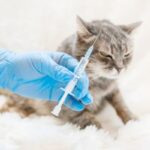It is not surprising that you want to learn how to quickly stop chronic diarrhea in cats. Here are some reasons cats and dogs can get diarrhea. Also, when is it time to take your cat to the vet? Pet owners are as everyone else. They’re looking Revolution Plus to cut back on the cost of medications as well as other products for good health to keep their pets in good health. We’re in the same boat and are pleased to make these World Pet Express discount codes accessible to you.
Cats & Diarrhea
Mild cases of diarrhea can occur in both feline and canine companions. They can be caused by eating small amounts of something they don’t like, switching to a different brand of food or a mild intestinal distress.
- However, diarrhea can also be a serious problem for your pet.
- What causes diarrhea in cats
- Here are the top reasons cats or dogs get diarrhea.
- Stress and anxiety
- Change in diet or treats
- Consuming rotten or garbage food
- Ingestion of foreign objects, such as toys, bones and fabric
- Consuming poisons or toxins
- Viral infection
- Parasites
- Bacterial infections
- Pancreatitis
- Inflammatory bowel disease
- Colitis
- Kidney disease or liver disease
- Intestinal cancer
- Antibiotics and other medications
How can you tell if your cat or pet has diarrhea that requires a vet visit?
How to contact your veterinarian about diarrhea in cats
It is unlikely that your pet is experiencing diarrhea, but it may be a mild episode. To check if your pet is feeling better, monitor their bowel movements. If your pet experiences more than two episodes, it could be a sign that there is a problem. It’s best to consult your veterinarian if you notice that your companion is experiencing diarrhea.
If your pet is straining to pass stool, but only passing watery diarrhea, they may have a painful obstruction. This is a serious problem that needs immediate attention and should be reported to your veterinarian immediately.
If your pet has compromised immunity or is very old, it could lead to recurring bouts of diarrhea. Many infections can be life-threatening, contagious and very serious. If your pet experiences repeated episodes of diarrhea, contact your veterinarian immediately.
A vet should be seen if your cat is showing any other symptoms than diarrhea. Contact your vet immediately if your cat is experiencing any of these symptoms.
- Stools with blood
- Drooling is a rare phenomenon
- Vomiting
- Insufficient appetite
- Weakness
Signs of dehydration include dry and swollen eyes, dry nose or dry, sticky gums.
Contact your veterinarian if your cat displays any symptoms that are concerning. If your cat’s symptoms are causing you concern, contact your veterinarian.






